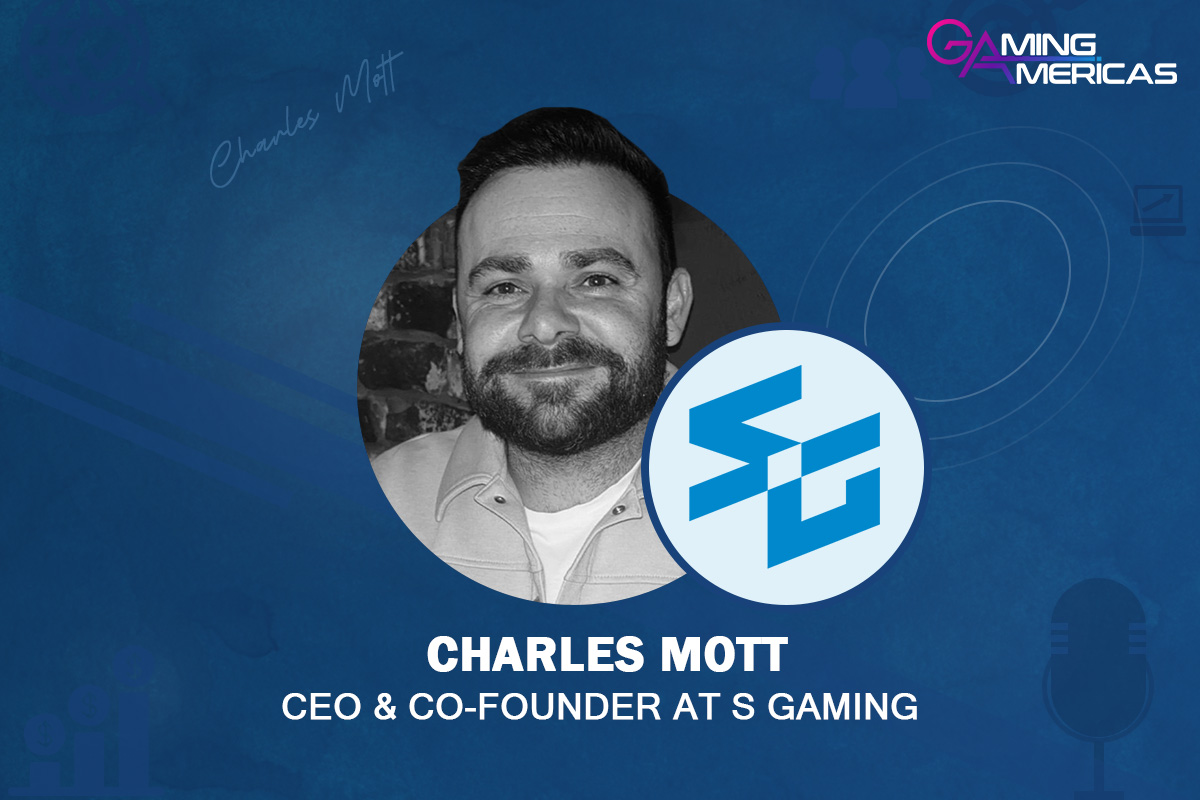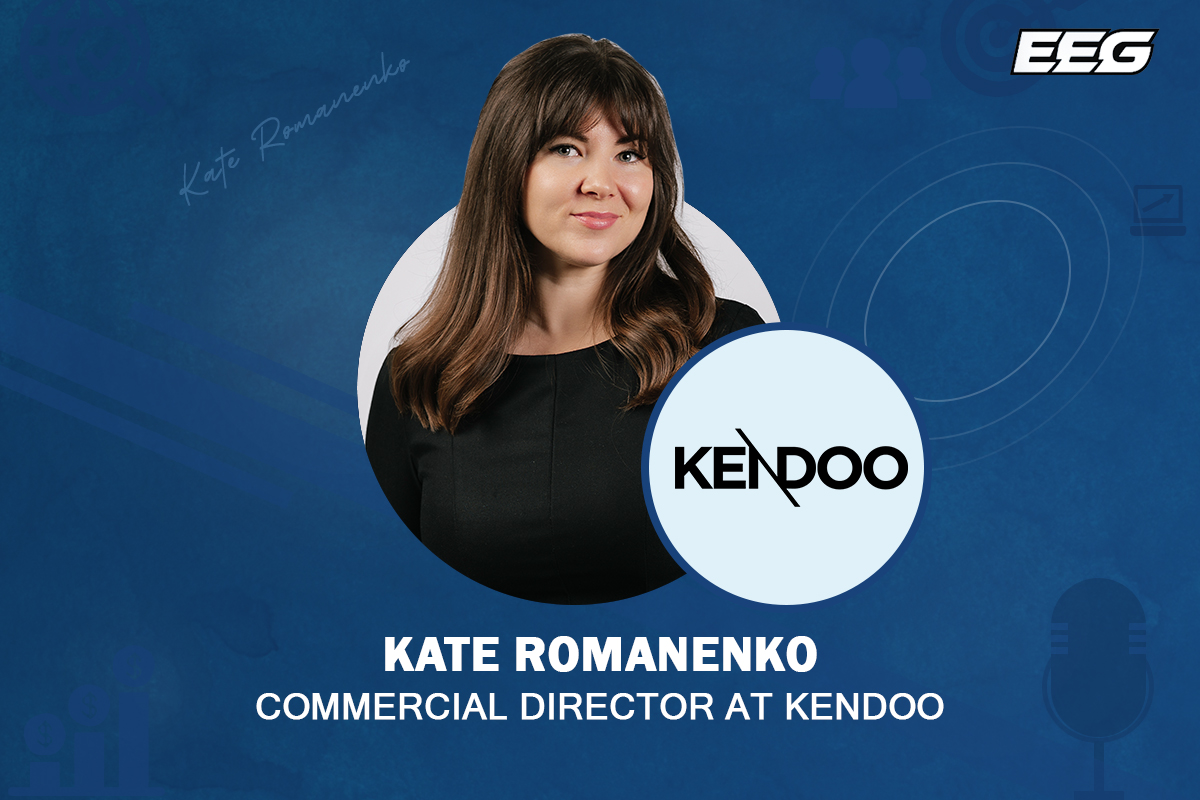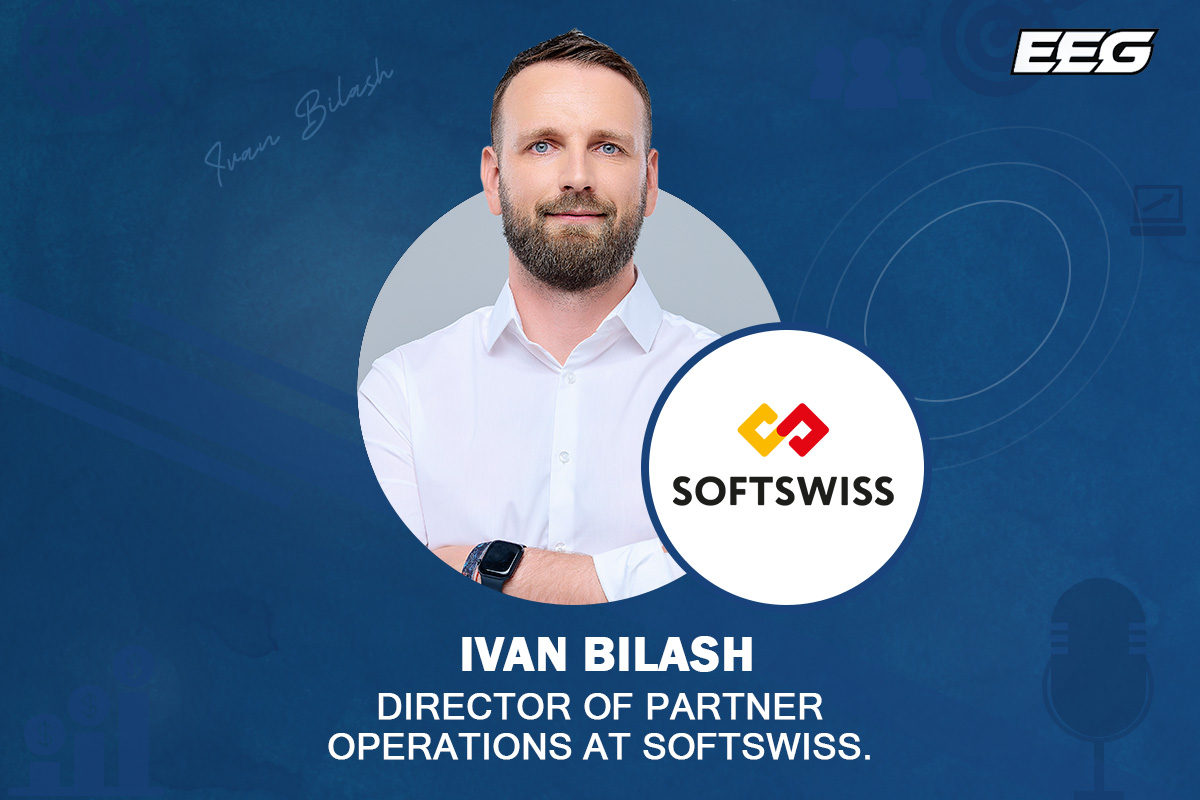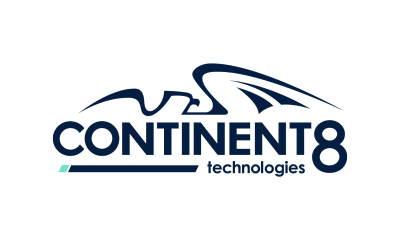Interviews
Cheltenham: Next steps for horse racing

Horse racing is one of the oldest activities in the world and the Cheltenham Festival is one of the spiritual homes of the sport. While the meeting is guaranteed to deliver strong engagement rates for UK-facing operators, there’s less interest among sportsbooks further afield in Europe. However, as horse racing continues to grow on the international stage, are European operators missing a trick by not identifying ways to make Cheltenham Festival and other UK meetings appealing to their own audience?
With the festival kicking off this week, European Gaming spoke to experts in the field on how the sport can make an impact internationally and the best practices required to make it relevant to a wider audience, while maintaining its status in the UK.
Alan Casey, CEO of AllSported
Adam Conway, Head of Trading at SIS
Dylan Casey Head of Paid Media, Checkd Media
Huge opportunities abound throughout the festival which brings a great deal of competition. How can horse racing operators make sure they stand out from the crowd during the event?
Dylan Casey: Too many operators allow their messaging to become like wallpaper throughout Cheltenham week. The ones who succeed are those that offer something unique or present their offer in a way that captures the customer’s eye and paid social advertising can allow operators to do just that.
A major advantage of paid social for horse racing operators is the guarantee of eyeballs and the sequencing of the messaging. The control of adverts being seen in a particular order can allow operators to get creative and even allow them to tailor the offer a customer sees based on their behaviour.
When running paid social for partner’s during the festival, we like them to refresh their messaging and offers daily. By tailoring it to certain races, horses or even jockeys, the messaging is always fresh and can help to avoid ad fatigue.
Not all operators will have the flexibility and resources to promote a different offer for each day of the festival. However, even if an operator’s offer isn’t unique enough to stand out, paid social advertising provides them with a huge opportunity to present that offer in a way that will allow them to do so.
Alan Casey: Content is king. Creating a sense of familiarity and comfort is all-important in cross-selling. Time and again, we see that racecards that feature plenty of content, predictions and ratings improve dwell time significantly.
However, even when an operator has this all-important content, how do they balance the integration times with the results? Separate integrations and multiple API feeds can take time and a lot of resources to put in place. It’s true that content is not always the priority compared to revenue-generating add-ons like cashing out, but without the content to engage customers, it’s likely a sportsbook will only get customers who are there to make a specific bet.
As well as that, consistency and balance matters a great deal, operators don’t need to be stand-out price every race, but an operator needs to be competitive in every race in terms of pricing and place terms. An operator can acquire a lot of customers by having the headline offer of the day or week, but it leaves the door open for customers to exploit that offer and leave.
Adam Conway: Aside from the traditional marketing techniques that operators adopt for the week of Cheltenham Festival, such as attractive promotional offers, offering a vast range of markets that are appealing to both existing bettors and newcomers is important. This includes the use of derivatives, which complement classic markets and allows those with little experience of racing betting to get involved.
Through our partnership with RACELAB we can offer the latest in trading technology which can help operators stay ahead of the smart money and offer prices at opportune times that standout from the crowd.
To what extent is there an appetite for UK horse racing outside the UK and Ireland? How does the sport need to adapt to appeal to this audience?
Alan Casey: From a customer perspective, there is a huge appetite, especially with regards to Cheltenham. It’s an easy sell with the best horses, jockeys and trainers on show and there are always magical storylines that capture the public’s imagination around the festival.
The obstacle for international operators is that the sport requires a huge level of expertise to work within it. The time and financial investment necessary to building a team to monitor the landscape is formidable.
The obvious solution is to outsource, but even then, there are pitfalls. It’s possible that an out-of-the-box service will leave an operator open to inaccurate pricing and following the exchanges blindly is dangerous based on liquidity and latency issues. It can be difficult to acquire and retain horse racing customers and even more so if there is no differentiation in the offering.
Operators need to invest in a flexible solution with a great deal of two-way communication. It’s vitally important to be able to react to your own customers’ bets and factor this into pricing. If an operator is reacting to the market alone, that lag will eat away at their bottom line.
Adam Conway: The cultural significance of major UK horse racing meetings means less for international operators and their customers, but there are still opportunities for non-UK sportsbooks to make the most of these events. The betting product needs be optimised differently for markets where there is less racing heritage, otherwise bettors are not going to be as likely to engage. This means promoting certain markets that can be more relevant to them. For instance, derivatives are becoming increasingly popular with international operators, with markets such as match betting and odds vs. evens far easier to understand. Ultimately, these types of markets don’t require as much insight into the sport itself, which encourages a wider audience to engage with the product. Horse racing needs to attract a new generation of bettors, and outside of the UK these kinds of markets are important to this approach.
Of course, establishing an in-house trading team to cover 24/7 racing events can be costly. In addition, the availability of traders that have the specialist knowledge required can be difficult to find in markets where there is a modest racing culture, which means they cannot efficiently manage pricing and risk. Our SIS Trading Services can help operators in these markets by offering them a fully outsourced solution that leaves the entire racing proposition in the hands of our experts.
How can international operators capitalise on UK horse racing meetings like Cheltenham Festival, which are proven to generate strong bettor engagement in its home market? What can domestic operators do to maintain a slice of the action amid such intense competition?
Adam Conway: One of the main challenges that UK operators face during major UK meetings such as the Cheltenham Festival is profitability. Promotions which include offers like extra places paid can impact the overall margins they can make. These sportsbooks require products and tools that can grow business and maximise margins. At SIS, we are working hard to make this possible by enhancing our Trading Services with the addition of next generation trading tools. In partnership with RACELAB, our traders now have the very latest technology advantage, ensuring we can stay ahead of the smart money and produce more intelligent prices. This includes the Odds Engine compilation software, which has the biggest breadth of content and the most sophisticated trader controls and the highest number of priced horses (including all the local pools).
For international bettors from regions where there is less racing heritage, we have found that it has been useful to offer additional levels of support to operators new to the sport. This means increasing the emphasis on those betting markets that are simpler to understand and don’t require specific in-depth racing knowledge. We can offer operators a managed trading service to help them manage their risk.
Alan Casey: A little education goes a long way. A huge number of people that aren’t full-time racing fans flock to bet on Cheltenham every year because of the status it holds. Investing in the right odds and pricing package that includes content as part of the deal can go a long way towards engaging these fans, as well as seasoned ones.
Cheltenham simply lends itself to this kind of content with some captivating narratives every year. Rachael Blackmore and Henry de Bromhead combining throughout last year’s event and taking the festival by storm stands out as a great example. There are always interesting narratives surrounding Ruby Walsh and Willie Mullins as well. It all captures the imagination and if international operators can gain the means to educate their customers on the ins and outs of the sport, they will be on to a winner.
Domestically, it’s about finding the right balance between trading and marketing teams. Consistency is essential in this product offering throughout the week. Single race odds boosts or acquisition offers don’t guarantee you a customer’s wallet for the four days of the festival or even for an entire day. The key is giving customers a choice of races that spreads out the positions more evenly and then helps the operator engage the customer in each race throughout the festival.
How is price latency and odds generation different in horse racing compared to other sports betting activities? What challenges does this present for operators?
Alan Casey: If we take a traditional sport like football, the teamsheets are announced an hour before kick-off and we see the market shifts as a result. Outside of that, there isn’t a lot of other information flowing into the market.
In horse racing however, there is more information in the market and operators are exposed from the minute they put bets up with no set times as to when information will enter the market. Latency issues become far more apparent in horseracing, dealing with large bets can result in loss of margin from a day’s racing. During the final minutes before the off, any latency or speed issue can result in operators being left badly exposed.
With the market constantly flocculating like this, Push APIs that inform operators the instant a price has changed can be invaluable, leaving no time for incorrect pricing on a sportsbook. Mere seconds of inaccurate pricing can be the difference between profit and loss.
Powered by WPeMatico
BetMGM
Breaking America with BetMGM

We speak to Charles Mott, CEO & Co-Founder at S Gaming, about the provider’s move into the US market with BetMGM and why more casual gameplay hits the mark with players stateside
Congratulations on your deal with BetMGM in the USA. Why is this such a milestone market launch for S Gaming?
The deal with BetMGM marks our hotly-anticipated launch in the US market, and sees our games go live to players in core regulated states such as New Jersey, Pennsylvania, West Virginia and Michigan. We see huge potential for our content in the North American market, and to make our debut with such a high-calibre operator is a testament to this. The US is still just finding its feet as a regulated online casino market, and our games, with their focus on sustainability and high entertainment, are the perfect fit for audiences who are used to land-based slots and are increasingly moving online. They are simple, easy to understand and play, and ultimately deliver tons of fun over longer playing sessions – just like the slot machines found on the floors of casinos in Las Vegas and beyond.
Just how important was it to go live with a tier-one operator like BetMGM? And how will the deal allow you to quickly build momentum in the US?
It’s mission critical. Going live with BetMGM allows us to build immediate trust with players, tap into a large and loyal playerbase, and simultaneously enter multiple regulated iCasino states at the same time. Now that we are up and running with BetMGM, we are turning our attention to striking partnerships with other operators active in the market. It’s pretty much the same blueprint that we’ve followed in our home market of the UK where we are now live with all but a handful of brands – something we have been able to achieve in a little over two years. We know the US is a slightly different market, but we are confident in our approach to game development and, as we gather more data on how US players interact with our games, will use this feedback loop to guide our product roadmap going forwards so that each title is better than the last and more suited to the preferences of US players.
You mentioned that your games are aimed at more casual players. How does this align with the preferences of US consumers?
If you walk onto the gaming floor of any Las Vegas casino, you’ll see row after row of slot machines. Increasingly, these machines are designed to keep players entertained for longer through gripping gameplay and regular wins. A lot of online slot content delivers high risk/high reward gameplay, where players can quickly clear through their balance as they hunt down big wins – wins that don’t land all that often. In a market where operators care deeply about retention and lifetime value, games that keep players spinning for longer really matter. Our approach to producing sustainable, fun games for players in the UK and Europe has allowed us to not only stand out but to engage players at scale, and we are confident players in the US, especially those who enjoy land-based slotting, will also be drawn to them at scale.
Has launching in the US been a major undertaking for S Gaming, or did it prove to be plain sailing for the most part?
When planning our move into the US market we identified two routes. We have our own remote game server, so we could build on that, secure licences in each state we wanted to enter, and then deploy our content directly with operators. The other option would be to work with a third-party RGS provider that already has the licences and integrations we needed. While the first option might sound like the best, in reality, especially for a smaller studio, the cost of and resources required for securing individual state licences can be prohibitive. So instead, we joined forces with Gaming Realms as they have the cutting-edge RGS and licences (in both the US and Europe) we were looking for. This means we simply need to build a US version of each game on the Gaming Realms RGS and can then deploy content with the wide range of operator partners they are connected with in regulated iCasino states across the US.
Tell us more about the initial run of games you’ve launched with BetMGM.
We’ve launched the partnership with Barnyard Bash Chicken Chase which will be followed by Triple 7 Jackpot in February and Cat and Mouse Collect in March – with one new game a month to follow as we build out our US portfolio. If players were to try just one of our games, it would be Barnyard Bash Chicken Chase. It gets players clucking as they spin the reels, collect Eggs and add them to the growing Nest – the more eggs collected, the bigger the Nest Egg becomes. Not only that, Eggs can randomly activate the matching colour-coded Nest Egg and award entry to the Chicken Trail feature, drop Egg-stra Free Spins or lay an Instant Prize.
But once they’ve tried it, they’ll definitely want to take Triple 7 Jackpot for a spin. This classic slot is dripping in neon action – the Triple 7 feature is always on screen but is locked until a spin lands three Bonus 777 symbols. This unlocks the feature with on spin awarded, giving players a shot at the 500x Jackpot prize. Free Spins are also up for grabs with seven Free Games awarded when three Scatters land in the base game.
Finally, Cat and Mouse Collect is a playful, feature-rich slot built around a simple but engaging Collect mechanic. Players pin the reels, collect up the cheeses and feed the hungry mice until they’re fit to burst. Green plates will serve up an instant prize, Blue will start the wild and wacky Cheese Chase and Red dishes out some feisty Free Spins. With regular feature triggers and plenty of on-reel interaction, it’s designed to keep players engaged from spin to spin without relying on extreme volatility.
What does success in the US look like for S Gaming over the next 12-18 months?
Success for us isn’t about one big hit, it’s about becoming a trusted, widely-distributed supplier in regulated iCasino states. Over the next year we want to significantly expand beyond BetMGM, roll out a steady pipeline of US-optimised titles and build the kind of player data and
operator relationships that let us grow sustainably. If players in New Jersey, Pennsylvania and Michigan are regularly choosing S Gaming titles as part of their core rotation, then we’ll know we’re really breaking into the market.
The post Breaking America with BetMGM appeared first on Americas iGaming & Sports Betting News.
3 Fortune Trees.
Kendoo interview: Can stability be the new innovation?

What innovation consists of within the slots industry is often debated. While there are often calls for more groundbreaking features to be introduced, the reality is that the progression of trusted and popular concepts is what drives the industry forward with new releases.
We caught up with the Kendoo’s Commercial Director, Kate Romanenko, to understand more on how long-term retention is often underpinned by controlled evolution of proven concepts, as shown in the company’s success over the past year.
In an industry driven by novelty, why do you think long-term consistency is becoming just as valuable as innovation?
In the competitive iGaming market, everyone is obsessed with “what’s next,” long-term consistency has become a signal of trust. Operators are increasingly cautious: they want games that perform predictably over time, not just those who grow only on launch. Controlled evolution, like we showed with 3 Pots and 4 Pots games, such as 3 Fortune Trees, 3 Gates of Pyramid, 4 Egypt Scarabs etc., proves that you can refresh mechanics and visuals without breaking what already works. Innovation still matters, but when it’s backed by performance data and retention, it becomes scalable, sustainable value rather than short-lived hype.
How does Kendoo ensure technical and gameplay stability across its growing portfolio, especially as it scales into new markets?
At Kendoo, we build on a select set of well-tested core mechanics, evolving them thoughtfully rather than introducing unproven systems. Each game reflects our research, experience, and deep understanding of player needs. This approach lets us expand into new markets without compromising reliability, delivering operators consistent performance and players a smooth, familiar experience they can trust.
What role does reliability play in building strong partnerships with aggregators and platforms?
Reliability is the foundation of trust with aggregators and platforms. When integrations are stable, launches are predictable, and games perform consistently, partners can scale with confidence. For Kendoo, reliability reduces operational friction on their side, fewer incidents, faster rollouts, and clearer performance expectations. Over time, this turns a supplier relationship into a long-term partnership, where growth is planned together rather than driven by constant risk around new releases.
Do you think players are beginning to value dependable, well-balanced games over constant experimentation?
Players enjoy novelty, but they return to games that feel fair, familiar, and well-balanced. Constant experimentation can create friction, while dependable mechanics build confidence and habit. That’s why evolved formats with proven performance tend to retain better: players know what to expect, and that reliability turns curiosity into long-term engagement. For example, taking mechanics like Pots, which originated in land-based casinos, and successfully adapting them for online play.
Can you point to a Kendoo title that’s become a steady performer over time and what that tells you about what players really value?
A clear example is 3 Fortune Trees. Since launch, it has consistently driven strong retention and engagement across markets, with an average of 500 bets per player, which is excellent. The game demonstrates that players value Pots mechanics and reliable, well-balanced gameplay over flashy, one-off features. Its engaging mechanics, popular theme, and premium art and animation all come together to create a game that players love to play.
The post Kendoo interview: Can stability be the new innovation? appeared first on Eastern European Gaming | Global iGaming & Tech Intelligence Hub.
2026 iGaming Trends Report
2026 iGaming Trends Marathon by SOFTSWISS – A Sneak Peek with Ivan Bilash, Director of Partner Operations

EEG sat down with Ivan Bilash, Director of Partner Operations at SOFTSWISS, after the SiGMA Central Europe Summit, where the company launched its 2026 iGaming Trends report. With over eleven years of experience in project and product management, Ivan brings a practical yet visionary understanding of operational excellence and partnership building. In this conversation, we explore key iGaming trends for 2026, the importance of data-driven insights, and how SOFTSWISS uses technology and collaboration to help operators improve player acquisition and build stronger relationships with affiliates.
Interview by Maria Emma Arnidou for EEG, HIPTHER.
The SOFTSWISS iGaming Trends report has become a highly anticipated annual playbook for industry professionals. What inspired this initiative, and how has it evolved into a vital resource over the years?
When we released the very first edition four years ago, the idea was to bring together everything the industry was experiencing but hadn’t structured yet. There was a lot of noise in the market – regulatory changes, new technologies, shifts in player behaviour, and so on. But there was no single place that connected all these dots.
Over time, the report has evolved into a tool that helps the market understand where things are actually heading. And that’s why it is so anticipated by both iGaming professionals and newcomers. It’s not just ‘trends for the sake of trends’ – it’s grounded in real data and clear patterns we observe, supported by our experience in analysing them.
For us at SOFTSWISS, it’s also a way to share what we see from the inside. We work with hundreds of operators, so we naturally spot early signals before they become global trends. The report is a way to turn all of that into something useful for the entire industry.
This year’s 2026 edition gathers insights from over 350 experts and applies AI analysis to more than 120,000 media headlines. From your perspective, what are the most striking or transformative findings emerging this year?
To be honest, there are many, which is why the report is over 100 pages long. But let me highlight the key points.
The first thing that jumps out is how quickly the industry is maturing. As we note in the report, the industry has outgrown its ‘Wild West’ phase. We see this in regulation, taxation, responsible gambling, and advertising. Many markets are tightening rules, but they are also becoming more predictable. That’s a good sign of a sector moving towards sustainable growth.
Another big takeaway is the scale of M&A activity. It’s no longer just large companies buying smaller ones. It’s about building ecosystems and obtaining technologies that help acquirers prepare for a world where efficiency is as important as market share.
And last but not least, of course, there is AI – not as a buzzword, but as infrastructure. Companies have moved past experiments, and now expect AI to deliver real value. This primarily concerns fraud detection and player protection. But I think it’s fair to say that AI has permeated all areas of business, from coding to marketing, and this shift is happening fast. In the report, we call this the industrialisation of AI.
When you combine all these trends, you realise that iGaming is becoming more mature and more structured, but also far more competitive. And with that comes a new reality: the industry is now much more demanding operationally.
The report presentation launched alongside the iGaming Trends Marathon at SiGMA Central Europe. What role do live discussions and community dialogue play in shaping industry progress?
I strongly believe that conversations matter more than slides. Trends only become useful when people challenge them and connect them to their own experience.
During the marathon, we saw something important: different parts of the industry – operators, suppliers, tech companies, media – are finally speaking the same language. Everyone understands that the next stage is about taking responsibility and making smarter decisions.
Events like SiGMA create that space. When you place 200+ people in one room and let them debate AI, regulation, M&A, and marketing, you get insights you would hardly get from reading a report alone. These discussions help operators understand why acquisition is becoming more complex and why working closely with affiliates, rather than treating them as a separate layer, is increasingly important.
For me, as someone responsible for partner operations, this is invaluable. These events show what operators are truly concerned about and what they expect.
Speaking of acquisition, how do you see the role of affiliates changing within the iGaming ecosystem?
This is an important topic that frequently arises in conversations with operators. Traditional acquisition channels are becoming increasingly expensive, more restricted, and in some cases simply unavailable. Naturally, this pushes the industry to rely much more on affiliates.
But affiliates today are no longer just traffic suppliers. Many have grown into strong, independent ecosystem players with their own strategies, data, and long-term goals. They understand user behaviour extremely well and often have deeper insight into acquisition funnels than anyone else in the market.
We also see another interesting shift: some large affiliate groups are moving into direct operations. This changes the dynamics. On one hand, there is less traffic available on the open market. On the other, new operators emerge with very strong marketing expertise from day one. That naturally increases competition for the end player.
Budgets are no longer the only decisive factor. Operators’ success now also depends on the quality of partnerships, transparency in working with affiliates, and having a product and strategy capable of converting and retaining high-quality traffic. From our perspective, this is a long-term trend that will shape the industry’s growth in the coming years.
The 2026 iGaming Trends report builds on years of data, but also integrates new analytical layers powered by AI and expert research. What makes this edition stand out, and how can professionals best use its insights?
This edition stands out because it explains why certain trends are emerging. AI helped us process more than 120,000 media headlines, and confirmed what operators tell us privately: the market is recalibrating. Responsible gambling rules are strengthening, cybersecurity is becoming a board-level topic, and compliance is now part of product design.
If you’re an operator or a supplier, the best way to use this report is as a planning tool. We’ve done all the heavy lifting and distilled each business area down to the most important insights. We have also introduced ‘Adaptation Paths’ at the end of each chapter. It’s a kind of checklist that operators can refer to when building their strategy.
Of course, the report won’t make decisions for everyone, but it gives a very clear map of the road ahead.
Finally, as Director of Partner Operations, what do you see as the most valuable trait in industry partnerships going into 2026?
I’d say consistency. Everyone talks about innovation, but in practice, what partners value most beyond stable operations is predictable communication and support they can rely on.
This year’s report shows that growth will depend on how well companies adapt to the new reality of increased speed and stricter regulations. In 2026, the best partners will be those who can combine flexibility with discipline: reacting quickly when needed while also thinking long-term.
For SOFTSWISS, this approach is in our DNA. We work side-by-side with operators through technical support, risk management, and daily operational guidance. When the market becomes tougher – which it inevitably will – this kind of partnership becomes a competitive advantage.
As SOFTSWISS continues to pioneer data-driven growth across the global iGaming ecosystem, the 2026 iGaming Trends report reaffirms the company’s commitment to knowledge sharing, collaboration, and innovation.
The 2026 iGaming Trends report is available – download it now!
The post 2026 iGaming Trends Marathon by SOFTSWISS – A Sneak Peek with Ivan Bilash, Director of Partner Operations appeared first on Eastern European Gaming | Global iGaming & Tech Intelligence Hub.
-

 Austria6 days ago
Austria6 days agoEU Court Ruling on Online Gambling Liability: Players Can Sue Foreign Operators’ Directors Under Their Home Country Law (Case C-77/24 Wunner)
-

 Alex Baliukonis Game Producer at BGaming7 days ago
Alex Baliukonis Game Producer at BGaming7 days agoCrack the Vault in BGaming’s Mystery Heist
-

 Central Europe7 days ago
Central Europe7 days agoRing Casino in Nürburgring at the Finish Line with NOVOVISION
-

 Latest News6 days ago
Latest News6 days agoSKIP THE QUEUE WITH THE MIDNITE SHUTTLE: MIDNITE TEAMS UP WITH SNOOKER LEGEND TO OFFER FANS A FREE SHUTTLE SERVICE FROM ALLY PALLY STATION
-

 Continent 8 Technologies6 days ago
Continent 8 Technologies6 days agoContinent 8 and CEO Michael Tobin claim number one spot in GamblingIQ’s global ‘Security 10’ rankings
-

 000x6 days ago
000x6 days agoPragmatic Play Sweetens Slots with Sugar Rush Super Scatter and Massive 50,000x Wins
-

 Balkans7 days ago
Balkans7 days agoCT Interactive Appoints Vasil Parvanov as Team Lead, Commercial Managers
-

 Latest News6 days ago
Latest News6 days agoXSOLLA LAUNCHES MERCADO PAGO IN URUGUAY GIVING DEVELOPERS ACCESS TO 60M+ ACTIVE USERS



















